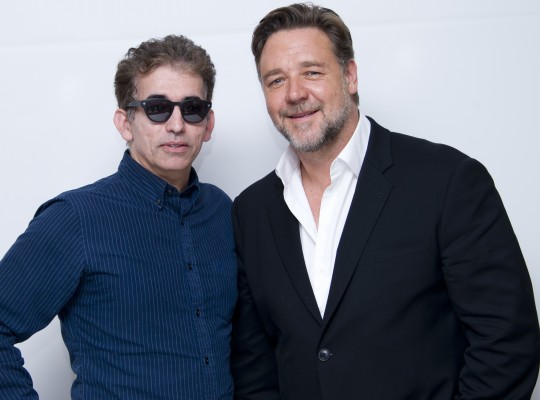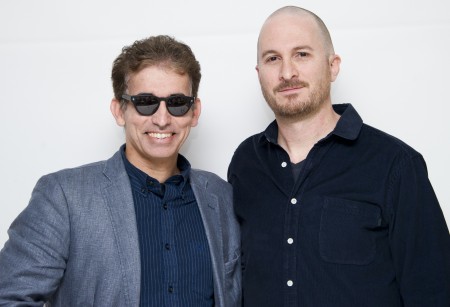
Even before it was released, Darren Aronofsky’s Noah, the epic movie about the biblical Noah and his ark, was flooded with a deluge of controversy from Christians groups, for failing to adhere to the original holy text, and from Muslim scholars who decreed that depicting a prophet like Noah by an actor is a blasphemy. Consequently, the movie has been banned in several muslim countries, including Qatar, Bahrain, Emirates and Indonesia.
Although the movie is inspired by the bible, the bulk of the narrative was invented by the filmmakers, simply because the entire story of Noah takes up only a few pages in the book of Genesis without any dialogue or details of Noah’s internal feelings. Hence the filmmakers took a dramatic license to delve into the psyche of this man and explore his relationship with his family and his God, in an attempt to understand what propelled him to commit such a monumental act that would alter the fate of humanity forever.
For a start, God is not even mentioned in the movie. Instead he is alluded to as the Creator, and unlike in the Bible, we don’t hear him speaking to Noah. Instead, Noah receives his orders in a dream to build an ark and save his family and all other creatures from the impending flood. In fact, at one point a mentally-broken Noah, played convincingly by Hollywood star Russell Crowe, cries to his creator, “why don’t you answer me?”
At an interview in Los Angeles, Darren Aronofsky, tells me he he used a long Jewish tradition called Midrash to find clues in the Biblical text. “You basically look for meaning between words and why certain words are used to bring to life biblical stories, and then applying them to modern life. This story is truly mythical, not just biblical; I think there’s a lot to learn from it.”
Imbued in special effects, stunning visuals, sword fighting and giant creatures, Noah is no different than the ubiquitous Hollywood epic fantasies. Granted, there are a few scenes in which we see Noah speaking to his creator and animals marching on board the Ark, but the bulk of the film tells a story of a man struggling to keep his family intact and safe in the face of an impending colossal catastrophe.
Crowe echoes the director’s words when I speak to him. “What I tried to concentrate on is that I don’t see this man as superman, he’s an individual,” the Oscar-winning actor stresses. “Reducing past, the allegory, past all of those things, just to get down to the simple human journey. He’s a man faced with a massive task that comes with a resonant burden. So one thing is doing the job, the next thing is thinking about what the job has been. Thinking about how you connect to all the people who didn’t make it onto the Ark and the resonant guilt.”
Indeed Noah is portrayed as a profoundly fallible man, tormented by a sense of doubt and guilt. Unlike the religious fanatics of our age, who unrepentantly and enthusiastically commit the most atrocious acts in the name of God, Noah seems unsure, audaciously questioning his creator’s orders. Amazingly, he has more compassion for God’s creatures than God himself.
“It says in the Bible that Noah was righteous in his time, and people often think the word righteous means good,

which it doesn’t,” the 44-year-old director explains. “The word righteous is actually a word of justice and mercy. And thinking about that, a parent, if you are too just, you can destroy your child with strictness, and if you are too merciful you can spoil them and destroy them. So finding that balance of justice and mercy, is what trying to be a good parent is, and that’s kind of the story of the creator and the story of Noah.”
The question is why does someone like Aronofsky, an evolutionist and a confessed atheist, want to tell a story that defies logic and is devoid of any common sense in the modern age?
“Why tell a film about the Greek Gods? Why tell a film about the Norse Gods or the Hebrew Gods? There’s not much of a difference,” the Oscar-nominated director of Black Swan exclaims. “There is something elemental about the Noah story that relates to everyone on the planet because it’s one of the great mythological stories. It’s a matter of getting away from the historical argument on both ends of whether it happened or didn’t.
“From an atheist point of view would be, how could you fit all the animals on The Ark, and that just doesn’t really make any sense to have that argument, because it’s not about that. Literalism is the enemy. The Noah story is a cautionary tale about destroying each other and destroying the world and if you do that, you are going to get punished. And right now, we are getting punished, it’s happening right now.”
Obviously, Aronofsky is not talking about a divine punishment but about the repercussion of our abuse of the planet and the environment. He took an ancient biblical yarn and boldly interpreted it for 21st century contemporary audience, pushing some aggressive environmentalism.
Aronofsky’s interpretation appealed to Crowe, a spiritualist who has never been baptised. “We all know that we do many bad things in our lives, even if it’s just a plastic water bottle, which is not necessarily great for our planet,” the New Zealander muses.
But having learned about the sanctity of the story and Noah to millions of people around the word, the 49-year-old actor approached it with caution. “I didn’t realise that Noah was in every ancient religious text. So I started to see the story of Noah, as connecting on a human scale, a shared human experience scale. So for sure, there’s never any intention from my perspective to do anything that would offend anybody from a religious perspective. I don’t see anything bad with a piece of art like this. I only see it as a positive thing. Discussions of spirituality, discussion of our stewardship of the planet, discussion about our relationship with animals. It’s an important thing.”